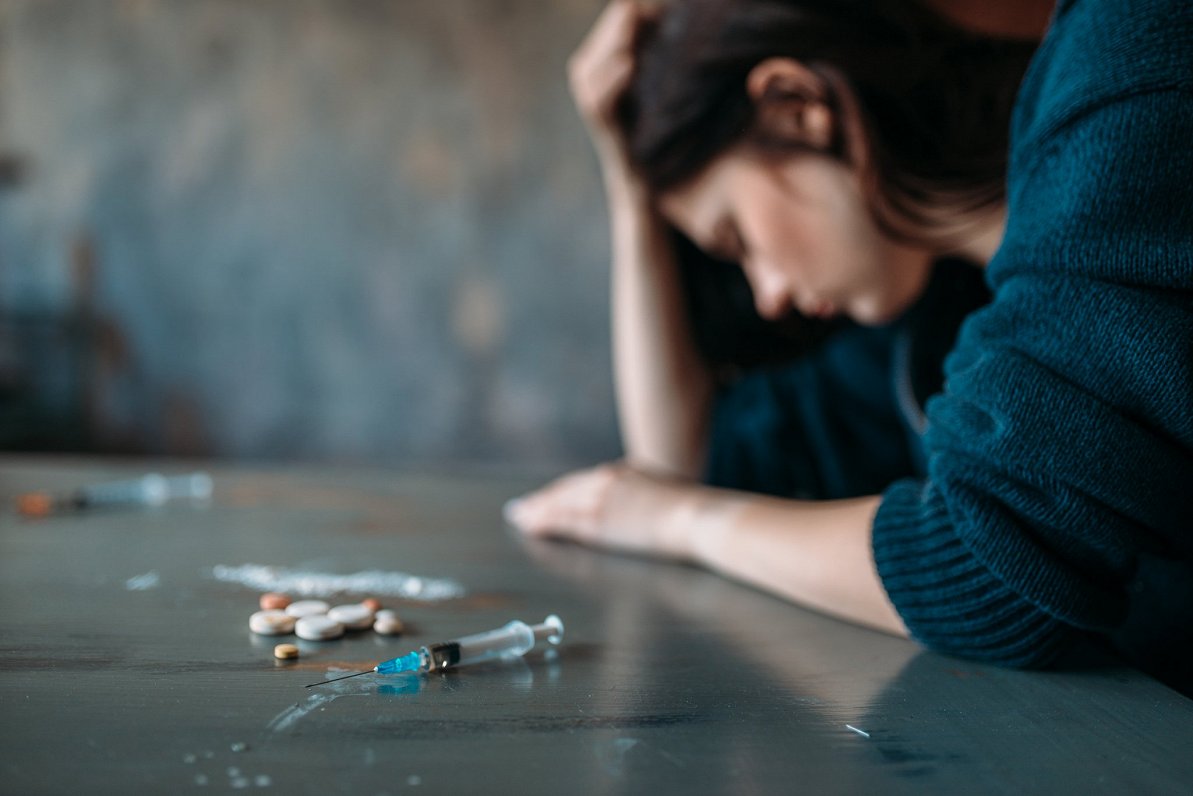The Ombudsman has previously raised the alarm about the devastating effects of addictive substances on children's health, but the latest report (attached to this story in Latvian) "paints a clear picture and analyses the causal links between what the law says and what a child's path actually is, with real-life examples".
Tiesībsarga ziņojums par palīdzības nodrošināšanu bērniem, kuri lieto atkarību izraisošas vielas
Download614.83 KB
In order to identify the prevalence of the problem, the Ombudsman asked the National Health Service (NVD) to collect data on children with diagnoses related to alcohol, drugs, and other psychoactive substances in 2021, 2022 and 2023. Data were obtained on 146 children treated in inpatient facilities in 2021, 167 in 2022, and 204 in 2023. Outpatient health services for these diagnoses were provided to 743 children in 2021, 898 children in 2022, and 1049 children in 2023.
In 2023, the total number of calls handled by the Emergency Medical Service (NMPD) due to drug use was 217, of which 141 children were taken to a medical institution; due to alcohol use - 1153, of which 664 children were taken to a medical institution. A total of 805 children were taken to a medical facility for emergency assessment of their health condition due to substance use during the year.
The study concludes that the network of treatment facilities for children with acute intoxication, as defined in the National Hospitalization Plan, is insufficient. The NMPD therefore has difficulties in getting intoxicated children to hospitals. The NMPD's reference to the efforts of medical facilities to distance themselves from children under the influence raises concerns that the NMPD in some cases refuses to take a child to a medical facility even though the child is so intoxicated that their health is at risk.
In cases where the NMPD has been called and the child has not been taken to hospital, general practitioners (GPs) find out about it. However, the current system does not allow GPs to know when a child under the influence of addictive substances has been taken to a treatment facility. They only find out if the parents inform the GP. However, in most cases, parents do not want other institutions to know about their child's admission to a treatment facility.
The lack of information on children who have been admitted to a treatment facility for substance abuse hinders the timely involvement of GPs in the child's health care, the ombudsman pointed out.
It is most often police officers who, in the course of their duties, are the first to come into contact with an intoxicated child. The police officer must hand over the intoxicated child to the legal representative or take the child to a medical institution.
If the child cannot be handed over to the legal representative within four hours, the police place the child in a foster family, crisis center, or child care institution, or, if this is not possible, in a prevention institution. A child who is intoxicated in a public place may be taken to a police establishment if it is not possible to provide assistance in any other way.
In 2023, 42 children, or 35%, were taken to a prevention facility of the State Police (VP) for alcohol and intoxicant use and aggressive behavior.
The Ombudsman has concluded that the police act in the best interests of children in contact with intoxicated children and in accordance with the legal provisions, as far as possible, because police action depends on the responsiveness and involvement of the cooperating authorities.
The Medical Treatment Law provides that minors are subject to educational measures when, as a result of substance abuse, the patient commits acts that are dangerous to society, systematically commits administrative offenses or endangers themselves or others by his actions.
Courts do not in all cases oblige a child to undergo treatment for an addiction if it was the cause of the offense; a decision to oblige a child to undergo treatment for an addiction cannot be enforced if the child does not comply voluntarily, the Ombudsman has concluded.
According to the Law on the Protection of the Rights of the Child, a child who has suffered from mental or behavioral disorders as a result of the use of alcoholic beverages, narcotic, psychotropic, toxic or other intoxicating substances shall be provided with compulsory treatment and social rehabilitation by the procedure established by the Cabinet of Ministers. Funds shall be allocated for this purpose in the State budget.
It also stipulates that narcological assistance may only be provided without the consent of the child and at least one of his or her parents or the orphanage court of the child's place of residence, if the child is severely intoxicated by alcohol, narcotic or psychotropic substances and his or her life, is in danger or if he or she has developed a mental disorder that endangers himself, his or her relatives or other persons by his or her actions.
Thus, in all other cases, if the minor does not agree to treatment, they may not be subjected to it compulsorily.
Both the shortcomings in the legislation and the divergent views on the treatment of children from addiction hinder the achievement of a common solution, the Ombudsman has concluded.
The Ombudsman has submitted 20 proposals to the Ministry of Health. These include preventing the failure of the mechanism for the protection of children's rights, established in the legislation and laid down in the law, to provide compulsory treatment for children, and preventing the principle of patient participation from taking precedence over the best interests of the child in the case of children suffering from mental or behavioral disorders as a result of substance use.


























